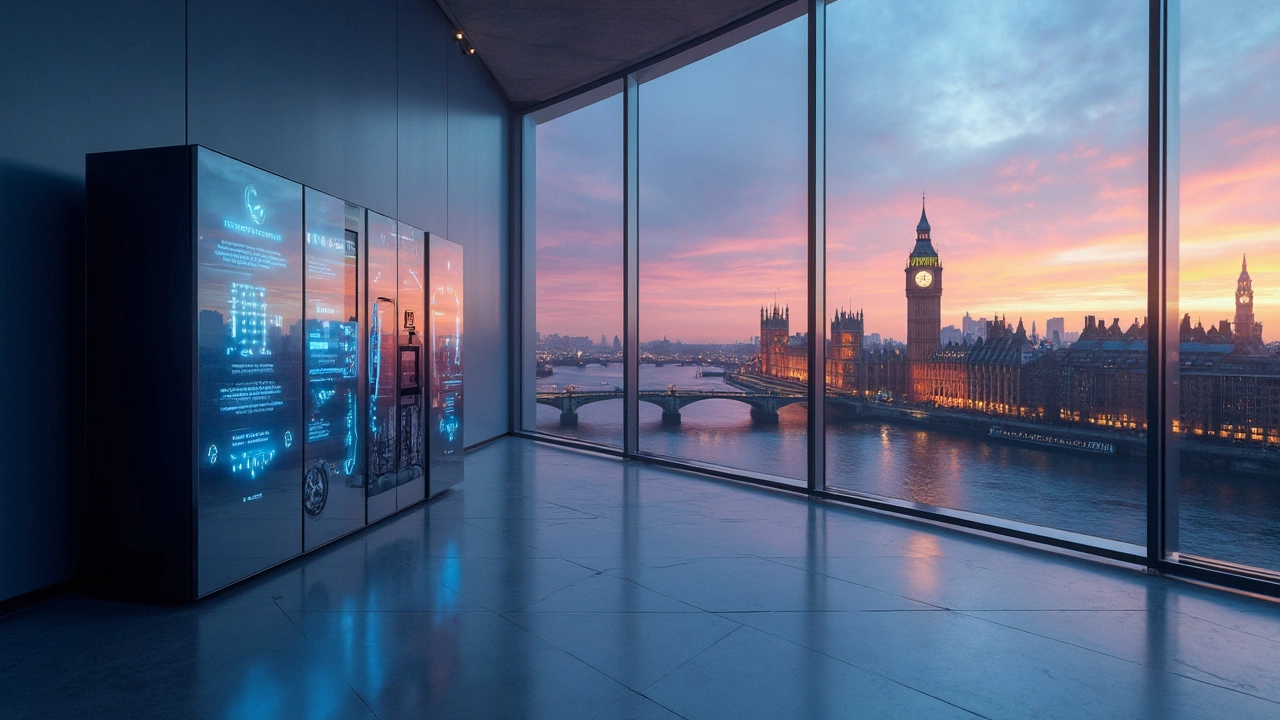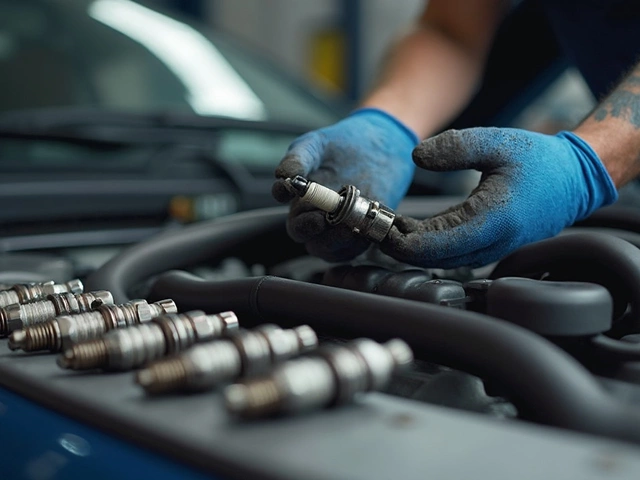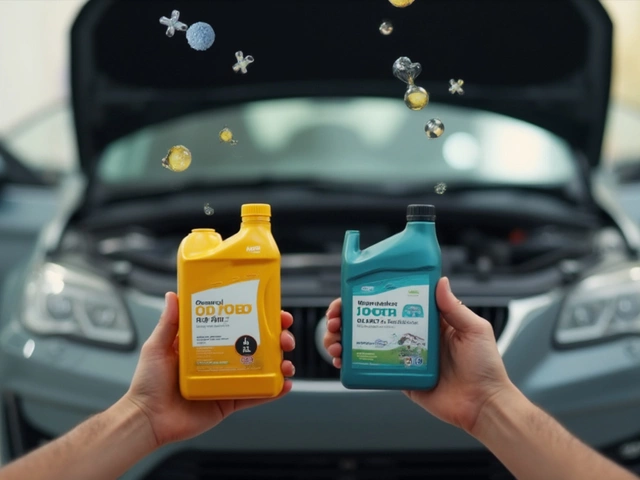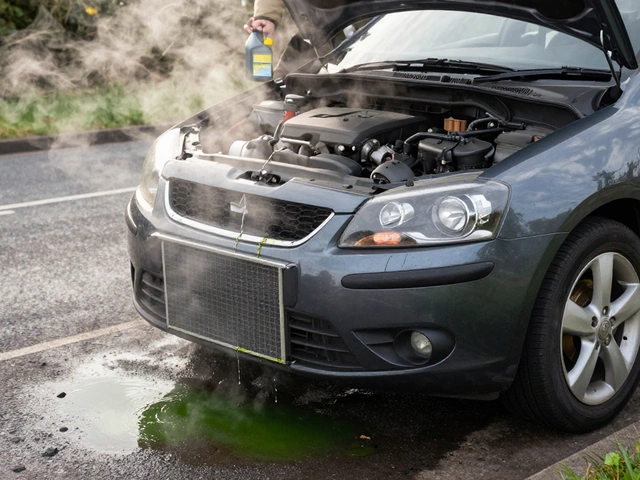Picking the right air filter can sometimes feel like solving a riddle, right? You need one that lasts forever (well, almost) while keepin' the air in your home fresh as a daisy. So, which one should you go for? Let's break it down.
The first step is knowing the different types out there. Do you go for fiberglass, pleated, or maybe HEPA filters? Each has its perks and downsides when it comes to lifespan. Fiberglass filters, for instance, are the cheapest, but you might find yourself swapping them out more often.
And then, there's pleated filters. They last a bit longer and are better at catching those pesky airborne particles. But are they worth the extra cost? We'll dive into that.
Of course, lots of things can affect how long your filter hangs in there. We're talking air quality, how often your system's running, and even the time of year. Knowing these factors can stretch the life of any filter.
Next up, how do you make your filter last longer? There's a few tricks involving regular checks and maintenance that'll save you some bucks and a few headaches.
And what's more critical: air quality or filter life? They don't have to be at odds if you strike the right balance.
- Understanding Air Filter Types
- Factors Affecting Air Filter Longevity
- Comparing Different Air Filter Materials
- Best Practices for Extending Air Filter Life
- Balancing Air Quality and Filter Life
Understanding Air Filter Types
Deciding on the right air filter type starts by understanding the choices you've got. Each type is a player with its own strengths and weaknesses. This ain't just about picking the cheapest one from the shelf, but rather finding the best fit for your home environment.
Fiberglass Filters: The Bare Bones Option
Fiberglass filters are the most basic kind. They're thin, flat panels designed to catch big particles like dust and lint. This cost-friendly option demands to be changed frequently, usually every 30 days. On the flip side, it's not the best for improving indoor air quality. According to HVAC.com, "Fiberglass air filters serve well for protecting the HVAC system from large particulates but offer minimal filtration for household air quality."
Pleated Filters: A Balance of Cost and Quality
Pleated filters are made of polyester or cotton folds. These offer better efficiency as they have more surface area to trap particles. They usually last about three months. While they cost more upfront than the fiberglass option, they’re more effective at catching smaller, and sometimes, allergens.
HEPA Filters: The Heavy Lifters
High-Efficiency Particulate Air (HEPA) filters are a top choice when air quality is a major concern. These beasts can trap at least 99.97% of particles as small as 0.3 microns, including pollen, pet dander, and tobacco smoke. They're often used in places where maintaining a clean environment is crucial, like hospitals. That said, HEPA filters might require modifications to your HVAC system due to their dense build, which can restrict airflow.
Here's a quick glance at some lifespan data you might find handy:
| Filter Type | Average Lifespan |
|---|---|
| Fiberglass | 30 Days |
| Pleated | 90 Days |
| HEPA | Up to 12 Months |
Choosing the right filter can seem a bit overwhelming, especially when figuring out how long they'll last and what they can offer in terms of air quality. By understanding the distinctive features of each filter type, you can make an informed decision that aligns with your home's needs.
Factors Affecting Air Filter Longevity
When it comes to making your air filter last, several things can totally make or break its shelf life. Understanding these factors can save you the trouble of replacing it more often than necessary.
Air Quality
First off, let's talk about the air itself. If you live in a place with lots of dust or pollen, your air filter's life is sure to take a hit. The more stuff in the air, the harder your filter works, catching those particles. So, if you're in a dusty area, consider checking your filter more frequently.
System Usage
How often you're running your HVAC system is another biggie. Cranking it up 24/7 to keep cool in summer or warm in winter? Your filter's working overtime! This is especially true during extreme temperatures, which pushes your system to work harder and your filter to potentially clog faster.
Filter Type
The type of filter you choose can dramatically change how long it lasts. Fiberglass filters, for example, are cheaper upfront but may need replacement monthly. Pleated filters, on the other hand, might last longer but can cost more initially. Prioritize what matters—cost or convenience?
Humidity Levels
Here's one you might not have thought about: humidity. High humidity can make your filter damp, encouraging mold and bacteria growth—gross, right? This not only shortens its life but also messes with the air quality at home.
Pets and People
If you've got furry friends or a full house, there's naturally more dander and dust. That means your filter's life shrinks a little with every wag of a tail or family gathering!
| Filter Type | Average Lifespan (Months) |
|---|---|
| Fiberglass | 1 |
| Pleated | 3 |
| HEPA | 6-12 |
Being aware of these factors and making small tweaks, like using exhaust fans or opening windows occasionally, can really extend the life of your air filter, saving you time and money in the long run.

Comparing Different Air Filter Materials
When it comes to air filters, not all materials are created equal. Let's get down to the nitty-gritty of what makes each type tick.
Fiberglass Filters
First up, fiberglass filters are like the fast food of air filters: cheap and easy. They're made of spun glass, and while they do a decent job of catching large particles, don't expect them to trap tiny ones. Major upside? They're pretty inexpensive, making them a good pick for those on a tight budget. Downside? They usually need to be replaced monthly—so not exactly long-lasting.
Pleated Filters
Next, we have pleated filters. These are made from a special synthetic material, and their accordion-like folds mean they have more surface area to catch stuff floating around in your air. They’re great at snagging smaller pollutants and last longer than fiberglass ones, needing replacement every three months, on average. They're a bit pricier but offer a better balance between performance and price.
HEPA Filters
Then there are HEPA filters, often hailed as the gold standard. Designed to capture 99.97% of particles down to 0.3 microns, they’re fab for folks with allergies or respiratory issues. They last about six months under normal circumstances, but that's because they're doing a top-notch job. Just keep in mind, they can be more expensive upfront and might need a compatible system to fit.
Other Options: Electrostatic and Washable Filters
There are also electrostatic filters which use static electricity to attract particles. They come in a variety of sizes and efficiencies, with some being reusable. Washable filters sound enticing too, but they require regular cleaning, which can be a trade-off for their durability.
Here's a quick and dirty comparison of how long these filters usually last:
| Filter Type | Average Lifespan |
|---|---|
| Fiberglass | 1 month |
| Pleated | 3 months |
| HEPA | 6 months |
| Electrostatic | Varies (some reusable) |
| Washable | Check monthly (wash every 3 months) |
Choosing the right air filter largely depends on what you're after—whether it's cost savings, longevity, or top-notch air quality. Weigh the pros and cons to find your perfect fit.
Best Practices for Extending Air Filter Life
If you're hoping to get the most out of your air filter, you're in the right place. Let's talk about some simple yet effective tricks to extend that lifespan.
Schedule Regular Checks
First things first, when was the last time you checked your air filter? It's easy to forget, but regular checks can make a big difference. Set a reminder every month to see how it's holding up. Catching a dirty filter early can prevent unnecessary wear and tear on your HVAC system.
Mind Your Surroundings
Your home's environment plays a huge role. Do you live in an area with high pollen counts or near construction? Your filter might need more frequent changes. Keep an eye on environmental factors and adjust your maintenance routine accordingly.
Seasonal Swaps
Changing the filter at the start of each season is a great habit. More use in peak heating and cooling times means more dirt and dust. A fresh filter before summer and winter can keep your HVAC running smoothly.
Keep it Clean Around the Filter
Dirt and dust build-up near your filter can creep in and shorten its life. Ensure areas around your vents and systems are tidy.
Consider Upgrades and Adjustments
- HEPA filters: If you have allergies, investing in a HEPA filter could mean less frequent changes.
- Install a programmable thermostat to run your HVAC effectively and reduce strain.
Track Your Usage
Durability might also depend on how often your system’s running. If you're cranking the air all day, it’ll need more attention. Try tracking usage to balance comfort and efficiency.
By following these tips, you're not only saving money but also prolonging the life of your air filter and HVAC system. Your home's air quality will be thanking you later!

Balancing Air Quality and Filter Life
When it comes to air filters, there’s this ongoing juggling act between air quality and how long the filter actually lasts. It’s like trying to find the sweet spot where your home feels fresh without breaking the bank on replacements.
Finding the Right Balance
The key is in choosing a filter that suits both your needs and your wallet. Pleated filters, for instance, offer a middle ground. They capture more particles than fiberglass, improving the air quality, but they don't need changing as often as HEPA filters unless you’re dealing with allergies.
Fun fact? The MERV rating (Minimum Efficiency Reporting Value) often guides these choices. A higher MERV means better air filtration, but it might also mean a shorter life since it's catching more stuff more often.
Tips for Extending Filter Life Without Losing Quality
- Check filters monthly. A quick peek can save you from overuse or underuse.
- If you're using a HVAC system, ensure regular maintenance. A well-maintained system puts less strain on the filter.
- Consider installing a pre-filter. It grabs the big particles, leaving the main filter to handle the finer stuff.
- Don’t crank your system higher than necessary. It wears out filters faster and can inflate energy bills.
When Quality Comes First
If someone in your home suffers from asthma or allergies, you might prioritize air quality over filter life. In such cases, investing in a high-end filter, like HEPA, might be worth the frequent changes. But beware ― all that extra filtering can mean more frequent replacements.
Remember, keeping air quality high doesn't always mean constant filter swapping if you pick the right one. And trust me, finding that balance can make your home's air as crisp as a mountain breeze without denting your savings!






